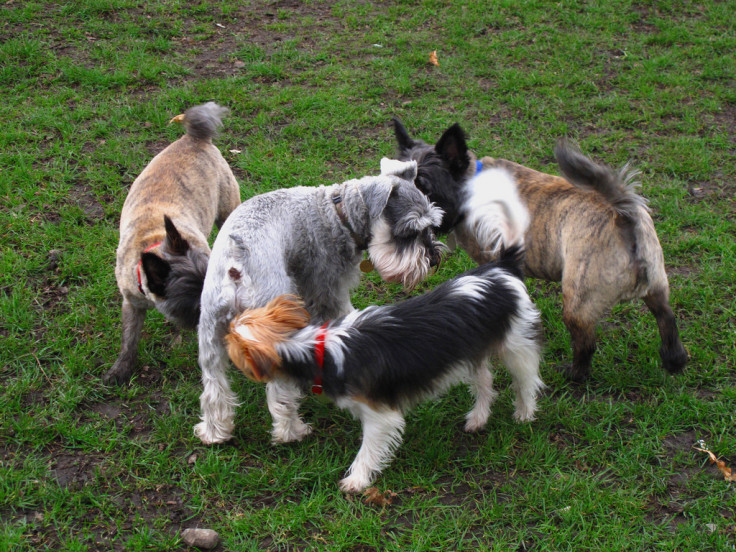Dogs proved to have compassion by sniffing others' urine

Dogs have the ability to sense when other pooches are happy or sad, says research from Tomsk State University. They have developed a self-awareness – equally seen in humans and most apes – which is generally considered a pre-requisite for compassion.
Researcher Roberto Cazzolla Gatti found that dogs were more interested in others' smells, as opposed to their own, because they know their own scent – showing that they are self-aware. It was also found that as dogs grows older, they become even more self-conscious.
"I went through the scientific literature and I discovered that the ability to recognize their own image in the mirror is a skill extremely rare in the animal kingdom," said Gatti. He added: "This test provides significant evidence of self-awareness in dogs and can play a crucial role in showing that this capacity is not a specific feature of great apes, humans, and a few other animals."
The test Gatti refers to is one not previously used before in analysing the self-awareness of animals. On previous attempts, a 'mirror test' has been used; where animals observe their own reflection, and use it to touch a red dot that has been applied under anaesthesia. Dogs, however, are less sensitive to this type of visual stimuli, so Gatti came up with an original idea.
"I imagined a new test able to move beyond the mirror version and I called it the 'sniff test of self-recognition,' described Gatti. He collected urine samples from four different stray dogs, and sorted them into separate containers. The samples were placed within a fenced area, and one by one each dog was allowed in to investigate the urine scents for five minutes.
The results, published in Ethology, Ecology and Evolution, showed that dogs were more interested in the smells of other dogs, and they spent more time sniffing those urine samples than their own. The researcher believes that this proves each dog knows its own smell, symbolising self-awareness.
This research follows a previous investigation by Marc Bekoff of the University of Colorado. Bekoff's novel 'Yellow Snow Test' involved marking on a map every time his own dog, Jethro, stopped to sniff another dog's urine. Bekoff then scooped a sample and carried it away, replacing it with a sample of Jethro's own urine. He found that on average, the dog spent less time sniffing his own product than that of others.
© Copyright IBTimes 2025. All rights reserved.






















